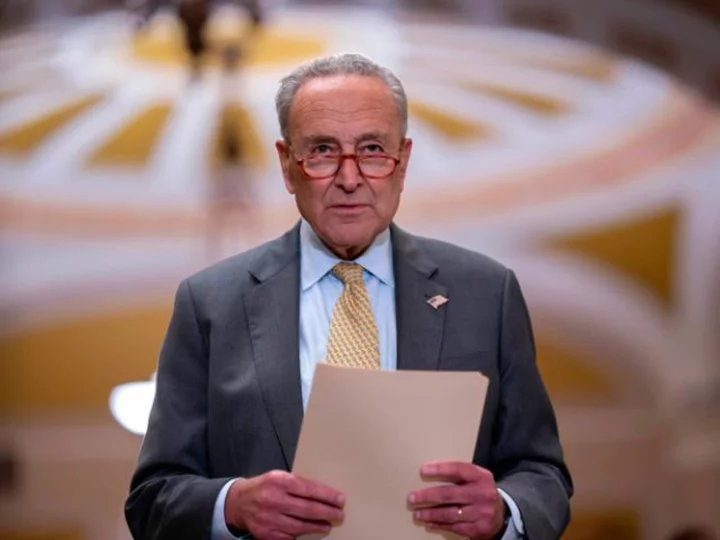By Angeliki Koutantou and Karolina Tagaris
ATHENS (Reuters) -Greece's conservatives were set to be offered an opportunity on Monday to form a coalition after winning the weekend's election, but without enough seats to deliver on their pledge to rule on their own, a second vote in June looks all but certain.
Prime Minister Kyriakos Mitsotakis' New Democracy party won 40.8% of the vote on Sunday versus 20.1% for the leftist Syriza, with his commanding victory suggesting he would not join forces with any other party.
It was a stunning boost for Mitsotakis, whose administration had to deal with a wiretapping scandal, the COVID pandemic, a cost of living crisis and a deadly rail crash in February which triggered public outrage.
He said his sights were set on the second ballot which will take place under a semi-proportional representation, with a sliding scale seat bonus, increasing the chances of an outright win for his party.
"The dynamics of the result were more than clear: citizens want a strong government, with a four-year term, (to carry out) bolder reforms," Mitsotakis said on Sunday after his win, which he said gave his party backing for "autonomous" rule.
While each of the three-biggest parties, including the Socialist PASOK, are due, in turn, to receive the three-day mandate to try to form a coalition, none have enough seats to form a ruling alliance, paving the way for the appointment of a caretaker government to take the country to a new vote as early as June 25.
"I understand that there is no scope for convergences or collaboration," PASOK spokesperson Dimitris Mantzos told state broadcaster ERT on Monday. "I think we can proceed to the second elections."
President Katerina Sakellaropoulou was expected to hand Mitsotakis his three-day mandate on Monday afternoon.
Greek shares rose 6.9% in early trade on Monday and banks outperformed, gaining nearly 15%.
Greek bond prices also outperformed their peers on Monday as investors reckoned the outcome of the election was unlikely to lead to a deviation from the current fiscal discipline.
(Writing by Karolina Tagaris;Editing by Alison Williams)









